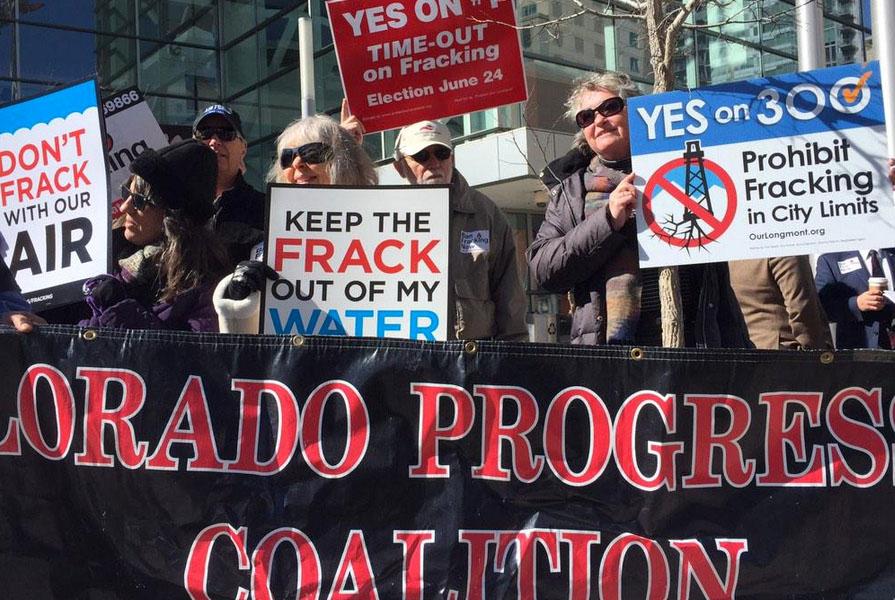
Efforts to allow for more local control over drilling operations in Colorado were among many proposals that failed to win approval from Gov. John Hickenlooper's Oil and Gas Task Force on Tuesday.
Several local control proponents weren’t pleased, including task force co-chair and La Plata County Commissioner Gwen Lachelt. Lachelt said the task force’s work fell short of the goal set by Hickenlooper.
"It’s just a really big disappointment," Lachelt said. “I feel like we let the people of Colorado down.”
Of the roughly 35 recommendations reviewed, nine received the necessary two-thirds majority vote from the group, and those now go to the governor and state lawmakers for final consideration. In the coming days they will determine which recommendations require legislative action and which can be adopted by the Colorado Oil and Gas Conservation Commission. The remainder will be added to a minority report.
- Sept. 8: Who Gov. Hickenlooper named to the panel
- Nov. 20: Mapping oil and gas wells' spread across Colorado
- Feb. 23: What the task force was designed to accomplish
Among the proposals that won approval: reducing oil and gas large truck traffic on public streets, adding more staff to the COGCC for well monitoring, creating a health complaint line, establishing a mobile air quality monitoring unit, and encouraging collaboration between state regulators, local governments and oil and gas operators.
That last recommendation was from former Secretary of State Bernie Buescher, who said he wants to get all players to "work together."
A proposal to require the full disclosure of fracking chemicals was also defeated.
Last summer, the governor struck a deal to establish the task force to head off several contentious proposals that would have been on the November 2014 ballot. As part of the deal, supporters of the various ballot measures agreed to withdraw them.
Democratic Rep. Jared Polis of Boulder, a fracking opponent, was a key player in removing the ballot measures. He released a statement critical of the industry and called on the governor to solve the problem.
“While a strong majority of the Commission rose to the occasion and supported common sense measures to address these issues, unfortunately, the oil and gas industry proved they weren’t interested in a compromise or solving the problem," Polis said. “Coloradans deserve better and I ask Governor Hickenlooper to finally hear their pleas."
The ballot measures came from pro-drilling forces, who wanted to penalize communities that ban drilling by hydraulic fracturing. The anti-drilling forces wanted to give municipalities significant control over where drilling happens, including dramatically increasing the minimum distance between drilling rigs and communities.
Tisha Schuller, president and CEO of the Colorado Oil and Gas Association, praised the commission's conclusions.
"We welcome community engagement and believe the more information that Coloradans have about oil and gas development, the more they will be open to developing our natural resources in a safe and efficient manner," she said. "This cadre of state leaders has spent hundreds of collective hours working toward solutions. We are committed to continuing to work on forging compromises that move the conversation about responsible energy development forward."
As the 21-member group met in downtown Denver, the newly formed coalition group Coloradans Against Fracking convened outside the meeting. The group is seeking to ban the drilling process, and members said they will seek to place an issue on the November 2016 ballot.
“We need to move immediately to renewable energy to protect our families and our future,” said Sam Schabacker with Food and Water Watch, an organization that's part of the new coalition.








